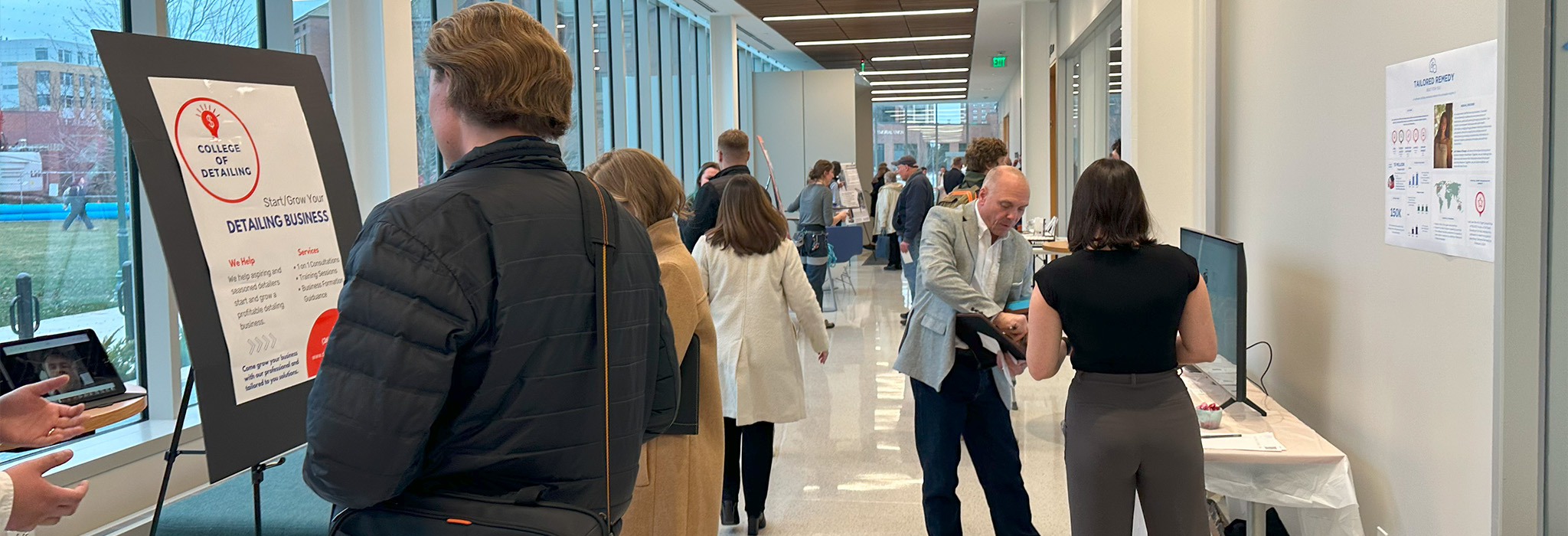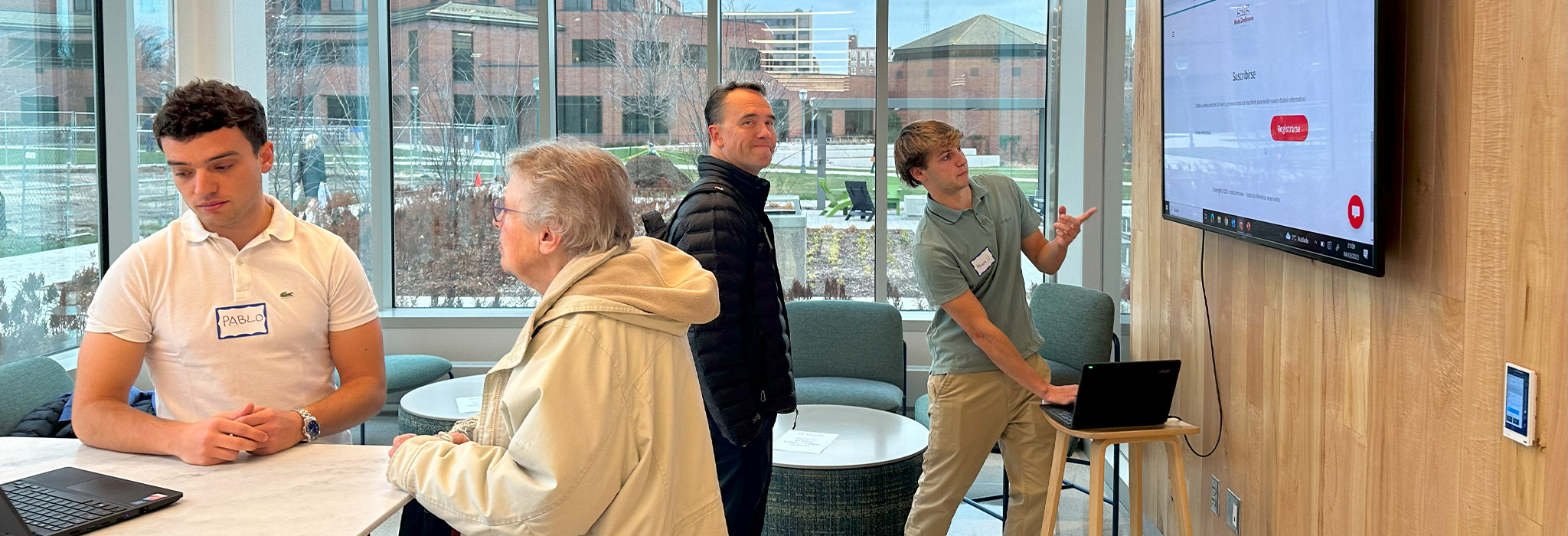Start your own student business with Marquette's Entrepreneurship Accelerator Program
Apply now
Why join the Flight School program?
1) Launch your startup with help from our Flight School Directors, mentors, and advisory board members!
2) Win thousands of dollars to fund your startup.
3) Land robust internships and jobs with innovative companies.
4) Make lifelong friendships with other enthusiastic, creative, and exciting student entrepreneurs.
5) Create a powerful resume' and LinkedIn with unparalleled entrepreneurial experiences and knowledge.
6) Receive free legal guidance from the Marquette Law and Entrepreneurship Clinic.
7) Earn 3 School of Business entrepreneurship credits.
8) Build your network by engaging with entrepreneurs, angel investors, attorneys, and more.
9) Compete in our Flight School Pitch Competition and win thousands to fund your startup.
10) Have fun!
- What will students learn?
- Pitch Competition
- Contacts
What will students learn?

Business Model Development
- Describe the elements in a business model
- Create a business model
- Develop business model hypotheses
- Conduct discovery research
- Pivot a business model
- Acquire skills to search for available patents, trademarks, and copyrights
Startup Branding
- Define the core components of the brand.
- Conduct a copyright, trademark, and patent search with the U.S. Patent and Trademark Office.
- Determine the availability of website addresses and social media brands
- Create their own logo
- Create their own promotional video
- Define website development, website management, paid search, search engine optimization, major social media platforms, eCommerce, and marketing automation.
Startup Marketing
- Develop their own website.
- Conduct a website performance test.
- Create a Google Ad
- Create a Facebook Ad
- Create a company social media presence on Facebook, Twitter, YouTube, and LinkedIn.
- Create an eCommerce store
- Develop engaging user content
- Develop a sales funnel

Startup Law
- Identify the tax implications and protection elements of proprietorships, corporations, and limited liability companies.
- Define intellectual property
- Define copyrights
- Define trademarks
- Differentiate between design and utility patents
- Explain the process of licensing
- Describe the considerations of contracts
- Define sales contracts, employment contracts, supplier contracts, non-compete, and non-disclosure contracts.
Startup Funding
- Describe the process and benefits of each of the following funding methods: Bootstrapping, Friends and Family, Banks, Angel investors, Crowdfunding, Online lenders, Grants, Pitch Competitions, and Startup Accelerators.
- Identify the elements of market valuation.
- Describe the benefits and challenges associated with equity distribution
- Select the appropriate funding method(s) for their startup
- Define the critical element of a successful pitch
- Create their pitch
- Deliver a startup pitch
Launching & Pivoting
- Determine the skills needed by the founding team
- Identify the benefits of advisors
- Create a board of directors
- Define a beta and when to use it
- Define a pilot and when to use it
- Describe and predict possible pivots that must be made with their startup idea.
- Create a startup launch plan.
Pitch Competition
Demo Day(Competition): Monday, December 4th from 2pm-3:15pm in O'Brien North Hall Contact john.s.peterson@marquette.edu for details.
Contacts
More info on the Innovation and Entrepreneurship Major






